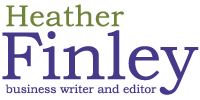Friends in work places
You’ve got this client you really, really like working with. You respect their ideas, they respect yours. And what’s more, you also have a few laughs together. It’s an incredibly positive professional relationship, and it feels like there’s a friendship developing.
Proceed with caution.
That area of professional-personal overlap is amazing. You’ve got patience, respect, and great communication. But professional relationships need to be tactical and directed, while friendships tend to be organic and loose. If you’re too much in “friend” mode, you can unconsciously stop pulling your professional weight.
Too much of a good time
A while ago, a former co-worker hired me to blog for him. Many years before, we’d been good colleagues and good work friends, too, so this felt like a sort of homecoming for me. It was a happy contract with few disagreements, but right about the time I started patting myself on the back, he stopped returning my calls.
I suspect the reason I was client-ghosted had more to do with budgets than anything else, but maybe he felt that I wasn’t taking him seriously enough. Our calls were comfortable, we swapped stories, and we’d joke about the work. Was I being unintentionally disrespectful?
In theory, managers/clients should be able to tell an employee/consultant that something is off without having to be overly chatty about it. But tact can be difficult when you’re focused on a job, and a lack of tact can cause friction with friends. That “comfortable” chattiness may have made my client feel too uncomfortable to have a direct conversation with me about something unpleasant.
What happens when there’s too much overlap?
From a sales point of view, it’s good if your clients like you because they’re more likely to rehire you. But as a consultant, your primary problem-solving role can get fuzzy if you’re not vigilant about boundaries. Your reliance on the friend-ish side of things creates a weight that the other party may not be willing to carry.
Recently, a client told me about someone she’d hired who spoke often and in detail about a chronic illness. The client was sympathetic but was frustrated because she quite reasonably wanted to stay focused on the work. And that goes both ways: a fellow consultant told me recently about a client who mixed personal stories into every business call. The consultant tried to be more efficient by creating tight agendas for worktime conversations, but this annoyed the client who felt the friendship merited a more relaxed style. In both situations, the business relationships suffered and eventually failed.
Never forget why you’re there.
To protect against the influence of power imbalances, some organizations have rules about employees declaring office romances. As well, many companies also have rules about not hiring friends to consult. But relationships develop over time and aren’t always definable.
Building a friendly relationship can be very positive professionally when both sides are conscientious and disciplined. Never say “never” to a human connection, but don’t forget that a consultant’s first job is to efficiently and effectively solve a problem.
It may be that you can do that best at arm’s length.
Tips
Do:
- When a business relationship is morphing into a friend-ish one, be deliberate about keeping business discussions focused.
- “I need to put my professional hat back on for half an hour…”
- Keep things on track: have a written agenda for your business conversations. Send it ahead of time to help your client plan, too.
- “Hi ____, here are some things I’d like to chat about in our call. Do you have anything you’d like to add before we talk?”
- Barring death or illness, keep your personal dramas to yourself.
Don’t:
- Don’t assume loyalty. Your client’s job is on the line, her budget may be cut, or there may be internal politics she can’t discuss with you.
- Never forget that your client’s colleagues will judge his choice of consultants.
- Don’t expect extraordinary treatment, but consider working a little harder.
Heather Finley is a marketing writer and copywriting coach who is friendly but focused.


